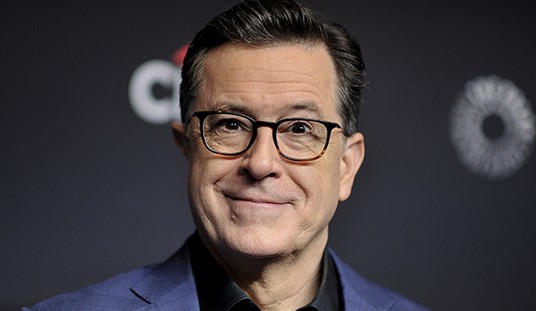USA Today shows papers falling prey to a woke culture that is a self-destructive pattern in the industry.
Recently on the Lie-Able Sources podcast, I covered how Gannett Company, publisher of USA Today, as well as numerous local papers across the country, announced it was phasing out its opinion pages content. The publishing giant was running fewer days of features or saw the elimination outright of op-eds, syndicated columns, political endorsements, letters to the editor, and political cartoons.
Part of this was due to cost-cutting measures. It is with an eye on revenue that they will no longer be spending freely on national column writers and other content, but also in the announcement were some less enthusiastic revelations from the parent company. A committee of editors from throughout the Gannett network met on the issue and had these comments.
Not only are editorials and opinion columns “among our least read content,” the committee said, but they are “frequently cited” by readers as a reason for canceling their subscriptions.
This sounds like a dawning of sorts may have struck the editors, but then an additional detail emerged, revealing a more accurate source of the problem mentioned. It would appear that the journalists who always proclaim an unbiased viewpoint were operating in a rather biased environment.
Readers this week reacted to the news by telling the media company to hire ‘writers that aren’t left-wing activists.’ Americans’ faith in the media has nose-dived in recent years thanks largely to the widely left-wing bias of many national publications and news networks.
This is a much more direct criticism, one that has been largely ignored by news operations. It is also one that is confirmed by a former Gannett journalist, David Mastio. He recently departed the company – forced out, essentially – after decades of working with them. In (ironically) an op-ed in the NY Post, Mastio describes an infrastructure at Gannett that is not just self-destructive but has been witnessed in other major newsrooms recently.

Mastio described a process he went through at USA Today last fall when he dared to make a Twitter post with a controversial position – he said that women were the ones who got pregnant. His comment was in response to a published piece that declared trans men could be pregnant. Mastio was told he needed to delete his comments because, in a now-familiar move of the woke species of journalist, his words caused physical harm.
“If I wanted to keep any job at USA Today, my bosses informed me, I needed to delete these offensive tweets because they were causing pain to the LGBTQ activists and journalists on our staff.”
This line of silencing debate has become tiresome in our society. Disagreements are now “personal attacks,” political positions “create an unsafe environment,” and divergent opinions are “threats of violence, or cause pain.” This is an infantilism that is not only taking root, it is being fed and encouraged in newsrooms, for some damned reason.
Mastio was eventually purged for his hateful practice of voicing his opinion on a matter.
Now, I have been an opinion journalist for 30 years — I thought I was authorized to have opinions. The idea that women are the ones who get pregnant has gone from scientific fact to opinion to outright falsehood in the blink of an eye.
This is a reality that is equal parts sad and hilarious. Look at the rapidity with which this new anti-science positioning become mandated — and the position of the paper as well has shifted with it. It used to be that when an opinion writer published a column that generated backlash the paper would respond with a shrug; they expressed an opinion, thus it would not be agreed upon by everyone and will generate debate. That was the initial point of the op-ed, after all.
Not anymore. Now there is a rigid thought requirement in newsrooms. Look at how Gannett addressed Mastio’s crime of thinking independently. He basically had to submit to a corporate struggle session.
But the LGBTQ Employee Resource Group and the newsroom “diversity” committee thought I should be fired. That makes me worry. No, I don’t worry for me. I’ll be fine. I am a cis hetero white male with all the privilege that goes with it, as I have learned in my Gannett-mandated diversity training. To even complain on my behalf would be a microaggression, as I also learned in Gannett training.
While this could be dismissed as a lone opinion, Mastio’s words take on real heft when balanced against stories that have emerged from other newspapers in recent years. Bari Weiss left the New York Times because the young woke journalists opposed the fact that she was a centrist on the staff. Her mere presence was a threat, and the sophomoric attitude was the paper was supposed to be inclusive, so she had to go.

In February the esteemed health reporter Don McNeil was let go because he once used a racial epithet. This took place in a conversation with some students about an episode in their school and McNeil had tried to ascertain what had been said, in order to lend an opinion. The staffers exploded in outrage and claimed all manner of offense, threat, and personal pain. That McNeil spoke this years ago, in another country, in an inoffensive fashion, and had already had the issue addressed prior by management was irrelevant. As was his apology.
His 47-year career at the Times had to be curtailed. Of course, this did not prevent the Times from lobbying the Pulitzer committee to not punish the paper over the incident and it did eventually win, on the strength of much of McNeil’s work.
The Washington Post is also enduring much of the same imbalanced attitudes. For inexplicable reasons editors have been tolerating the ethical lapses of Taylor Lorenz on the regular, as she displays this same behavior in her work. The episode with Felicia Sonmez typified this mentality, as she sought to cancel Dave Weigel over a retweeted joke, and proceeded to lash out at the paper’s intolerable permissiveness for a week.
It is clear this is an environmental reality that is overtaking the news industry. It has long been believed this woke mentality was affecting the news delivery system, and now that we see that this is the case with Gannett, you get a sense of how widespread it has become. Beyond USA Today, Gannett operates over 250 news outlets countrywide, and if this woke culture affects its newspaper network the problem is widespread.
Mastio is only confirming what Gannett’s editorial conclave determined: This woke intolerance is repelling the news audiences. Culling opinion content is the wrongheaded solution. The nation is clearly divided, so why not seek to serve both sides? Instead, what Gannett resorted to was homogenized opinion that permeated hundreds of mastheads, and repelled readers.
Their solution is emblematic of the flawed thinking in the news industry. Instead of appealing to all sides and drawing in more people, they choose to eliminate any alternative viewpoints, ultimately appealing to no one. As polls consistently show, this only leads to more people turning away from the journalism sector. They are perpetuating their own irrelevancy.














Join the conversation as a VIP Member